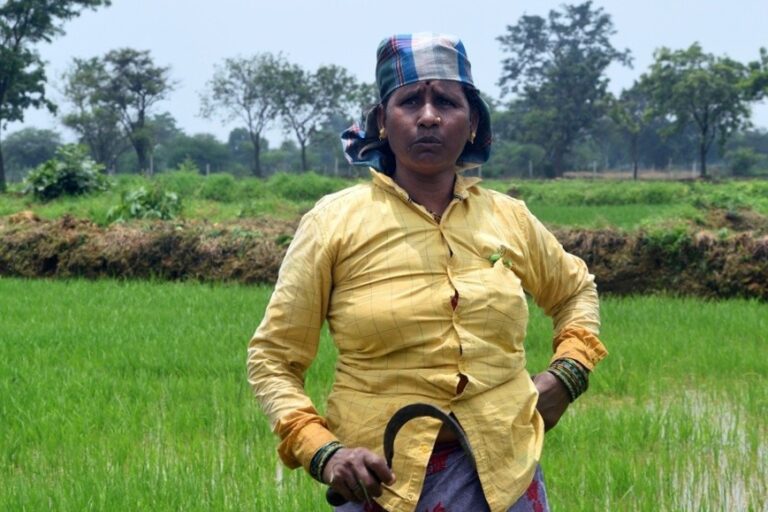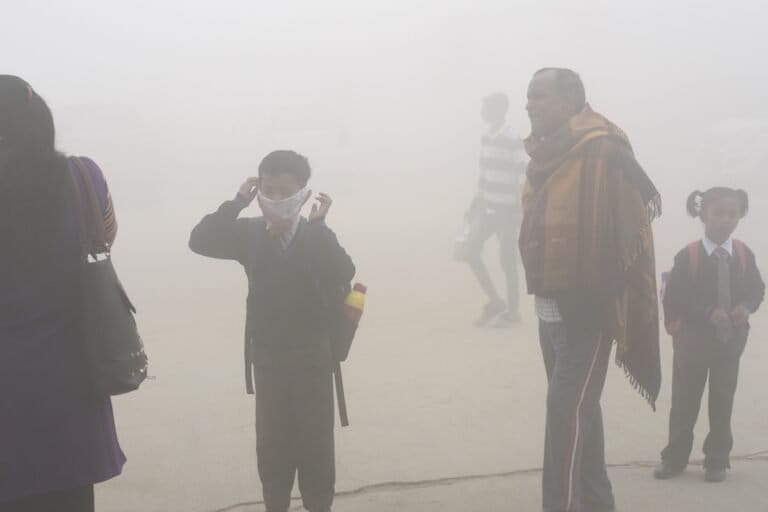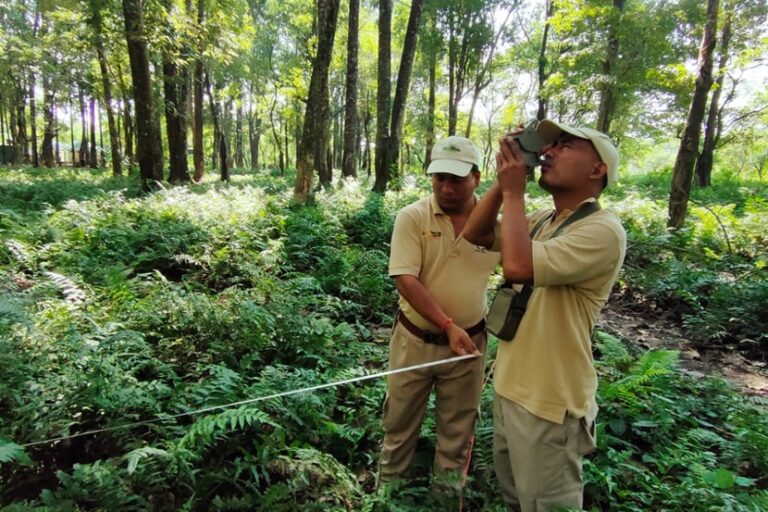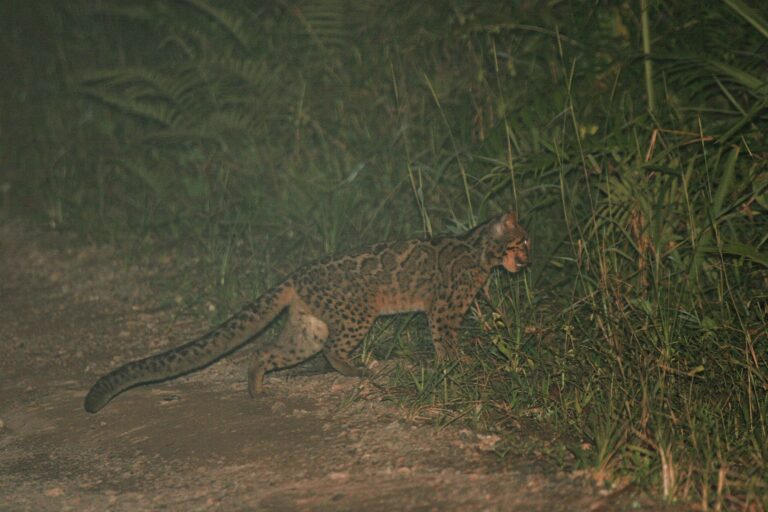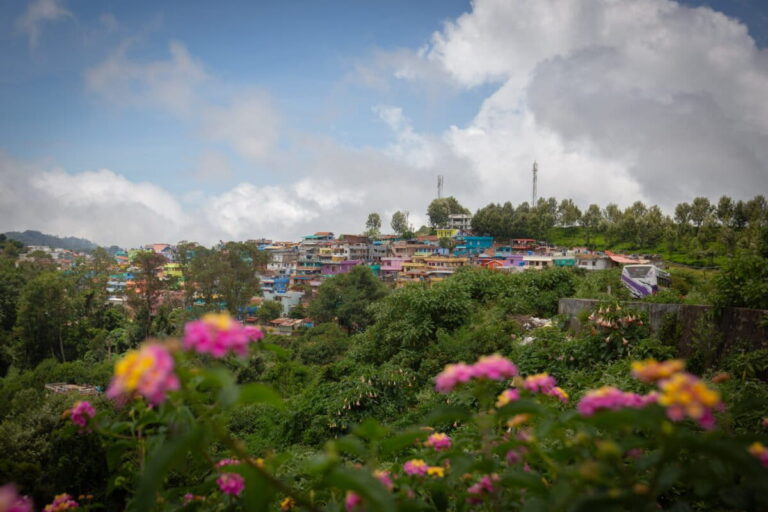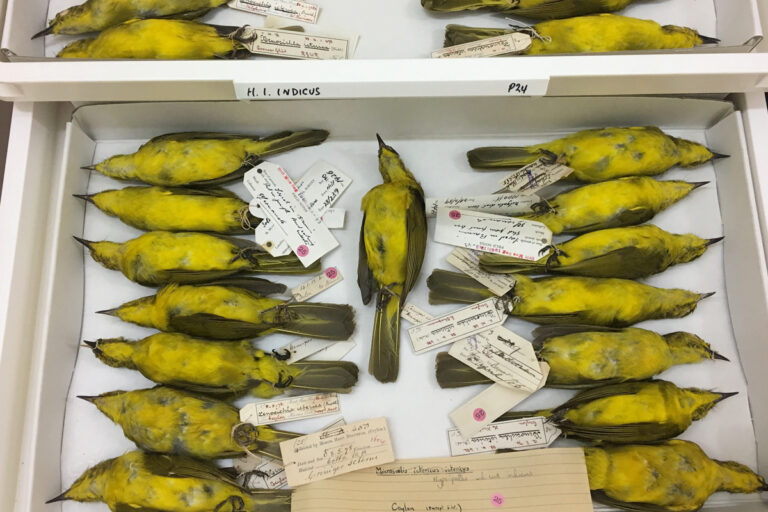- The Chhattisgarh State Scheduled Tribes Commission (CGSTC) says clearances for mining in Parsa block were given based on forged documents.
- The mining of Parsa block in the Hasdeo Arand forest has been contentious, and residents have long said they never provided consent for mining.
- Hasdeo Arand is considered one of central India’s largest unfragmented forest stretches.
An investigation by a state government body alleges key documents were forged to secure clearances for mining in Chhattisgarh’s Hasdeo Arand forest. The report’s findings align with the claims of residents in the affected area, who have long argued that consent for mining was never taken from them.
The investigation, conducted by the Chhattisgarh State Scheduled Tribes Commission (CGSTC), pertains to the Parsa coal block, a 1,252 hectare expanse in the Surguja and Surajpur districts. The CGSTC made the findings of its investigation public, in a letter addressed to the district magistrate of Surguja on November 4.
In the letter, the CGSTC said it has found inconsistencies in the number of people who attended the gram sabha (village council) meetings. It found evidence that the proposal for mining was added after the gram sabha meetings had already concluded. The Commission recommended the clearance for the project be cancelled and directed Vilas Bhoskar, Surguja’s district magistrate, to reconvene gram sabhas in three affected villages within 15 days of the letter’s issuance, to discuss the issue in accordance with the law.
“So far, there’s been no response. We wrote to the district administration, state government, and the Union Ministry of Environment, Forests, and Climate Change, but none of these authorities have responded to our findings,” Bhanu Pratap Singh, chairman of the CGSTC , told Mongabay India.
No new gram sabhas have been convened yet. Mongabay India reached Bhoskar, Surguja’s district magistrate, for comment on the CGSTC report, but no response was received by the time of publication. Queries to the Union Ministry of Environment also went unanswered.
Shomona Khanna, former legal advisor to the Union Tribal Ministry and an advocate practicing in the Supreme Court, called the Commission’s findings “extremely powerful.”
“The report makes it very clear that the consent process has been subverted. Given this is the report of a statutory body, its findings are significant. The central government is duty bound to act on these findings,” she said.
Days before the Commission’s report was released, trees were felled in the Parsa coal block to prepare the block for mining, leading to a violent altercation between residents and the police. Trees were felled despite the ongoing dispute over the project’s clearances, and directions from the Commission to suspend mining-related actions till its report was released.

Attendance inflated, consent fabricated
The Commission looked into the issue after 50 residents from various villages filed a complaint in August 2021, alleging gram sabha consent for mining in four villages in Surguja district – Salhi, Hariharpur, Fatepur and Ghatbarra – was fabricated.
Surguja and Surajpur districts fall under the fifth schedule of the constitution, which makes special provisions in tribal areas over the governance of land. Under the Panchayats (Extension to Scheduled Areas) Act, land cannot be acquired without the consent of gram sabhas.
“Gram sabhas were held between 2017 and 2018. None of these gram sabhas passed an agenda item on mining, because it was never discussed. In the past, we have consistently opposed mining in a new area because we know how damaging it is,” Ramlal Kariyam, a complainant in the case and resident of Salhi village, told Mongabay India.
The Parsa coal block is adjacent to the already operational Parsa East and Kente Basan (PEKB) block. In 2015, the Parsa coal block was awarded to Rajasthan Rajya Vidyut Utpadan Nigam Limited (RVUNL), a public sector undertaking which also owns the PEKB block. The operation and development of the mine was later contracted to private conglomerate Adani Mining through a competitive bidding process.
Over three years, the CGSTC summoned the complainants, officials from RVUNL, and district authorities from Surguja and Surajpur. During its summons, it asked the divisional commissioner of Surguja to suspend all mining-related work in the Parsa block. “The documents were examined, and the statements of the applicant and non-applicant parties were recorded. This clarified that the Gram Sabhas held in Salhi on January 27, 2018 and in Hariharpur on January 24, 2018 only discussed and approved the proposals from agenda items 1 to 21 sent by the Zila Panchayat (district council),” the CGSTC’s letter says, adding that the twenty second agenda item on mining was added to the gram sabha documents later.
According to the CGSTC’s letter, after the gram sabha meetings were concluded, the sarpanch, gram panchayat president, and gram panchayat secretary were intimidated and “pressured” to sign the proposal on mining by RUVNL and district officials, but refused. “Upon questioning, the (gram panchayat) secretary admitted in front of the villagers and district administration officials that proposal number 22 (on mining) was written in the government rest house in Udayapur,” the letter says.
Agenda items 1 to 21 pertained to building roads in the district, installing water pipelines, and matters concerning the forest department, Kariyam and Singh said.
The CGSTC’s letter also says before the documents were sent to the Union Ministry of Environment for clearance approval, the number of those in attendance in the gram sabha meetings was inflated to reflect higher numbers. In Salhi village, the numbers were allegedly increased from 150 to 450, in Hariharpur from 95 to 195, and in Ghatbarra from 132 to 482.
The letter goes on to state that during a public hearing on the issue of gram sabha consent, held in September 2024, two officials representing RUVNL, B.L. Verma and M. Singh Bala, asked the Commission for 10 days before filing its reply. The Commission says the company never appeared before the Commission, nor did it file its reply.
“To obtain environmental clearance and permission for forest land diversion for the Parsa Coal Block, Rajasthan Rajya Vidyut Utpadan Nigam Limited misused district administration officials and employees. They mentally harassed elected tribal women sarpanches and nominated gram sabha presidents, pressuring them to sign fraudulently prepared proposals. This constitutes harassment under the Scheduled Castes and Scheduled Tribes (Prevention of Atrocities) Act,” the letter says.
In a statement given to media, RUVNL refuted the Commission’s findings. “The issue of Gram Sabha’s approval is pending adjudication, and none of the courts have yet passed any adverse observation on the aspect of alleged irregularity in the permissions,” the company reportedly said.

Mining can worsen human-animal conflict
Hasdeo Arand is considered one of central India’s largest unfragmented forest stretches. A 2019 study on the forest’s biodiversity, sanctioned by the Central and state governments and carried out by the Indian Council of Forestry Research and Education, found that the forest was home to nine species given the most protection under the Wildlife Protection Act. The report recommended the project go ahead but with “strict” environmental safeguards.
Another report by the Wildlife Institute of India (WII), done in 2021, warned that mining activities could worsen conflicts with elephants due to habitat loss. “Any further threat to elephants’ intact habitats in this landscape could potentially deflect human-elephant conflict into other newer areas in the state, where conflict mitigation would be impossible for the state to manage. Opening up of coal blocks for mining in the Hasdeo Arand Coalfield would compromise the imperatives of biodiversity conservation and livelihood of forest-dependent locals,” the WII report says.
The Parsa coal block was given stage one forest clearance by the Union Ministry of Environment in 2020, while stage two was awarded in 2021. The final approval by the state government came in 2022. The block which has a reserve of 184 million tonnes of coal, is approved with a production capacity of 5 million tonnes per year.
The Chhattisgarh Bachao Andolan (CBA), an umbrella group protesting mining in Hasdeo Arand, said it would distribute copies of the Commission’s report in ten thousand villages across the state. “In the upcoming winter session, one lakh public petitions will be presented to the state assembly against the destruction of Hasdeo forest, in violation of the resolution of the Gram Sabhas,” the CBA said in a statement, adding, “The CBA demands that the forest and environment clearance issued to the mine should be cancelled immediately by taking action on the Commission’s report. A criminal case should be registered against the guilty officials and the mining company.”
Banner image: A waterfall in Hasdeo, Chhattisgarh. Image by Umesh Ratre via Wikimedia Commons (CC BY-SA 4.0).







